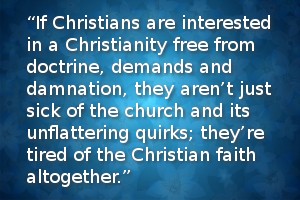Distance Learning Bible Bachelors
I am pre-screening some schools for a young man in our church. He desires to study for the ministry. Please give me recommendations on the following:
* Christian College or University (either Fundamentalist or Conservative Evangelical in alignment)
*.4 year Bachelors degree by distance learning in Bible/Pastoral Studies
* Quality education
* Able to take Federal Student Aid funds such as Pell Grants
* Preferably with class/interaction via internet
Your input is appreciated.
 By James Rickard. Reprinted with permission from the
By James Rickard. Reprinted with permission from the 

 This article was first published in the
This article was first published in the
Discussion